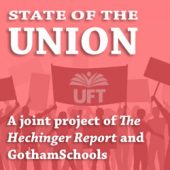Who’s afraid of big data?

Nestled in a dusty corner of my office sits a safe, which requires both a key and a combination to open. Inside the safe sits an external hard drive containing my only copy of encrypted confidential data from the National Longitudinal Study of Adolescent Health (Add Health), a federally funded research study that collected longitudinal data on the health behaviors of adolescents, their friendship networks and siblings, their schools, school transcripts, academic performance, school and community context, and, in later waves, some biological data derived from the analysis of blood, saliva and urine samples. I don’t use these biomarkers in my own research, so I don’t have those data—but I do have some of the survey and transcript data. If I wish to analyze the data on my desktop computer, I must first remove the computer from my college’s network, unplugging the Ethernet cable and disabling any WiFi connectivity. The statistical software must reside solely on my desktop computer; it cannot reside on a network server. Furthermore, I have to configure the software to store any temporary files on the external hard drive, not the desktop computer’s hard drive. And if the computer is inactive for three minutes, the screensaver is activated, and I must enter a password to log in. Even though these data files do not include the names of study participants, the design of the Add Health study increases the risk of deductive disclosure, which is when an individual’s identity and information can be identified through the use of information in the study itself, or when those data are combined with other publicly available information. For
For teachers, the perks of union membership can include a personal touch

The public face of the New York City teachers union is often that of a political heavyweight engaging in battle with opponents like the mayor and charter school supporters. For many teachers, the union is often something more personal and classroom-focused. The face of the United Federation of Teachers and its state affiliate, New York State United Teachers, is that of a training organization for many teachers who take courses with the unions and get in-person help in the classroom. The unions also dispense basic benefits like health and dental insurance along with perks like discounts on movies and theater tickets, group trips to events such as the Philadelphia Flower Show, and legal help when teachers have problems at work or, to a limited degree, if they’re accused of a crime. (NYSUT, which provides both for teachers around the state and members of the UFT, spends about $85 million annually on legal services, which covers the salaries of about 260 union staff members
